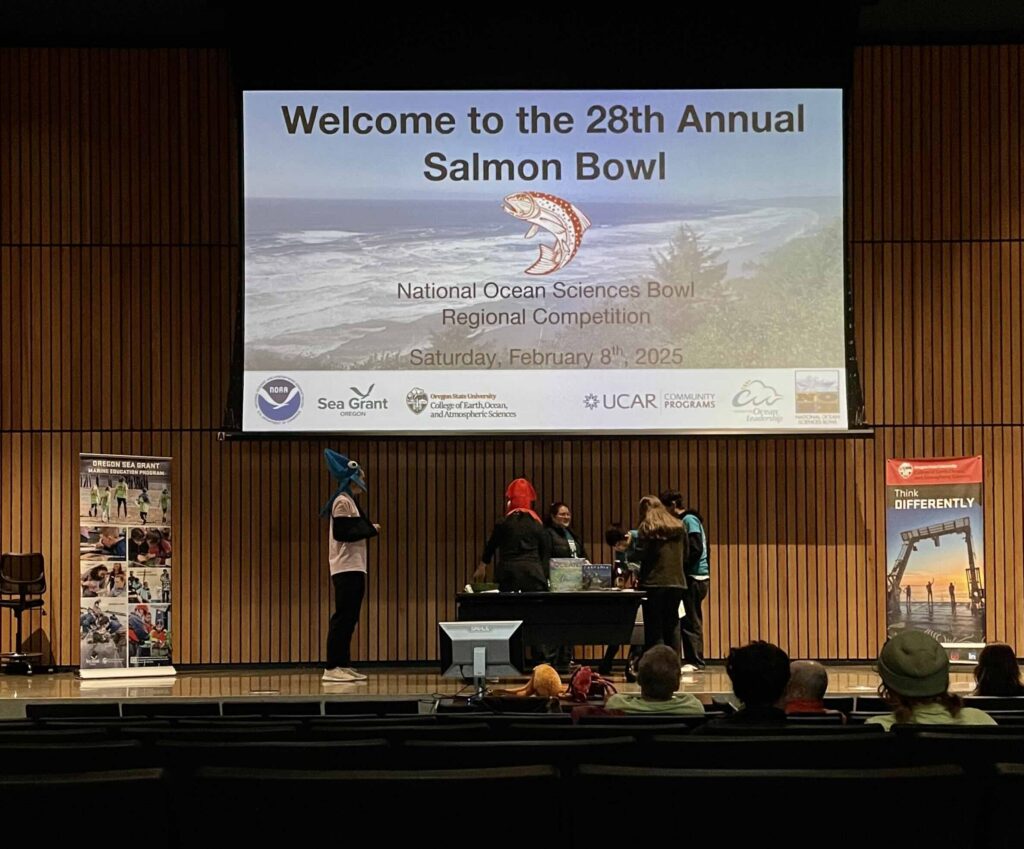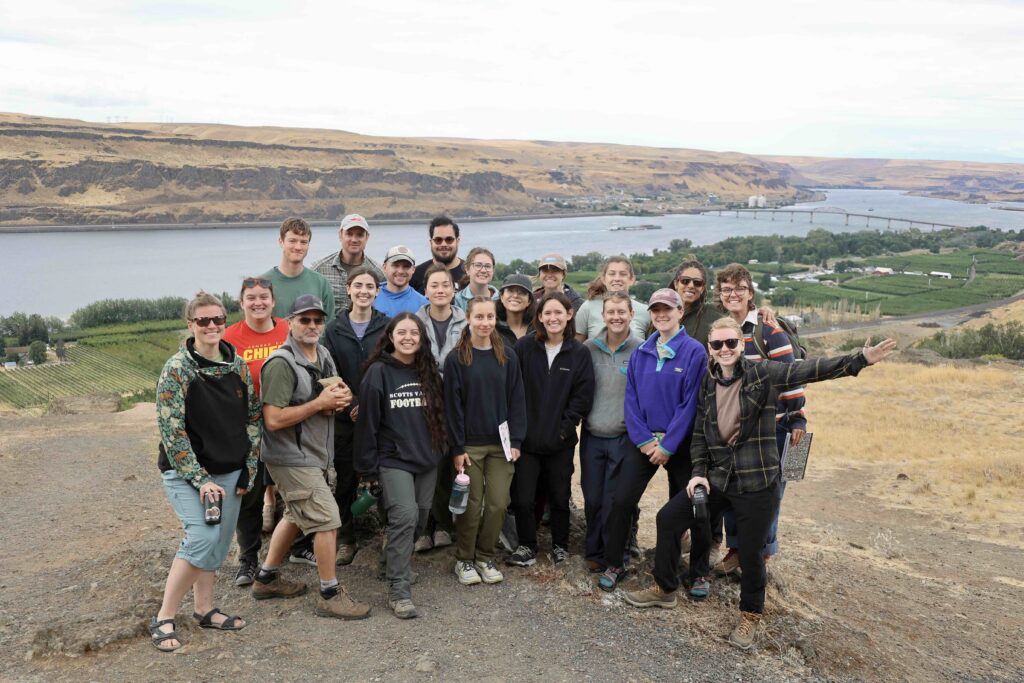Our group participates in a variety of service and educational activities year-round; a selection is provided here.
2024-2025 Early Career Polar Chief Scientist Training Program
In August 2024, Emily and Laurie Juranek planned to hold a second Polar chief sci training cruise on USCGC Healy through the Northwest Passage. The NWP cruise was cancelled due to vessel issues but we held an in-depth two-day workshop about cruise planning and leadership skills in Edmonton, as well as a community outreach event in Kugluktuk, Canada (our original planned port of departure). In October we supported eight early career participants on a makeup cruise in the Chukchi Sea, and in 2025 we supported early career participation on the NABOS cruise to the Arctic Basin. This work is funded by the NSF Research Support & Logistics and Education programs.

Salmon Bowl (2024-2025)
Emily A. and Eden volunteered as game officials at the 2025 Salmon Bowl, the annual regional competition hosted by OSU as part of the National Ocean Sciences Bowl (NOSB). The Salmon Bowl draws high school students from around the state to compete in a trivia-style competition based on all aspects of marine science. Emily acted as Moderator and Eden as Scorekeeper/Timekeeper for a full day of round-robin trivia matches and are looking forward to next season’s competition! Emily E. joined other faculty as a volunteer grader in 2024-2025 and enjoyed seeing students’ rich knowledge of interdisciplinary ocean science.

Cascadia class (OEAS 500), 2024 and 2025
Emily has been co-teaching the Cascadia class with Rick Colwell (2024) and Jeff Beeson (2025). This is a 3-credit graduate experiential learning course which is required for most incoming graduate students in the OEAS and Marine Resource Management degrees. The curriculum is structured around a one-week field trip in northwest Oregon, and designed to introduce students to the unique geology, geography, hazards, and marine ecology of the region and also help students build a strong network of peers.


Summer 2024 REU program
Molly and Emily mentored two students through the NSF-funded Research Experience for Undergraduates (REU) program hosted by OSU CEOAS. The REU students used sediment cores from OSU’s Marine and Geology Repository to investigate patterns of sedimentation in the Arctic and Antarctic. The students collected subsamples from the cores and analyzed them for porosity, organic content, and grain size distribution. Additionally, Emily taught the students how to collect sediment cores using a vibracorer and Molly trained the students in the acid digestion process that is used to age-date sediments using the radioisotope 210Pb.
2023 Early Career Arctic Chief Scientist Training Cruise
Emily E. and Laurie Juranek teamed up to co-lead a training cruise on R/V Sikuliaq for purposes of training junior researchers in best practices for requesting and using ship time on icebreakers. The training program included pre-cruise meetings and workshop activities followed by six busy days at sea. We engaged with a host of guest presenters, mentors, and ship personnel who facilitated a training sessions ranging from overboarding considerations to post-cruise assessments and reporting. The program, which was modeled after prior lower-latitude training cruises and supported by NSF Research Support & Logistics, provided the framework for a 2024 cruise on USCGC Healy (below).

